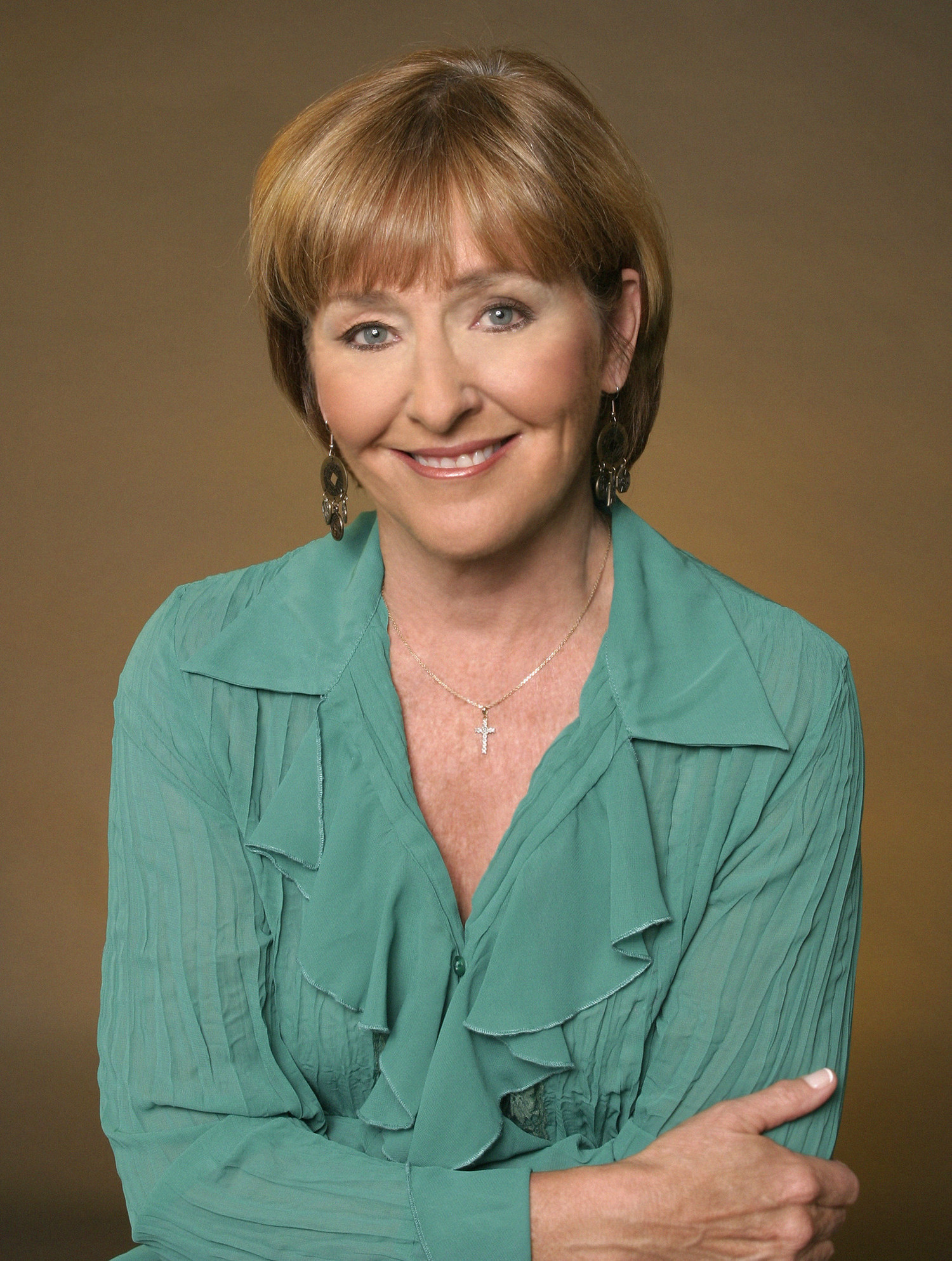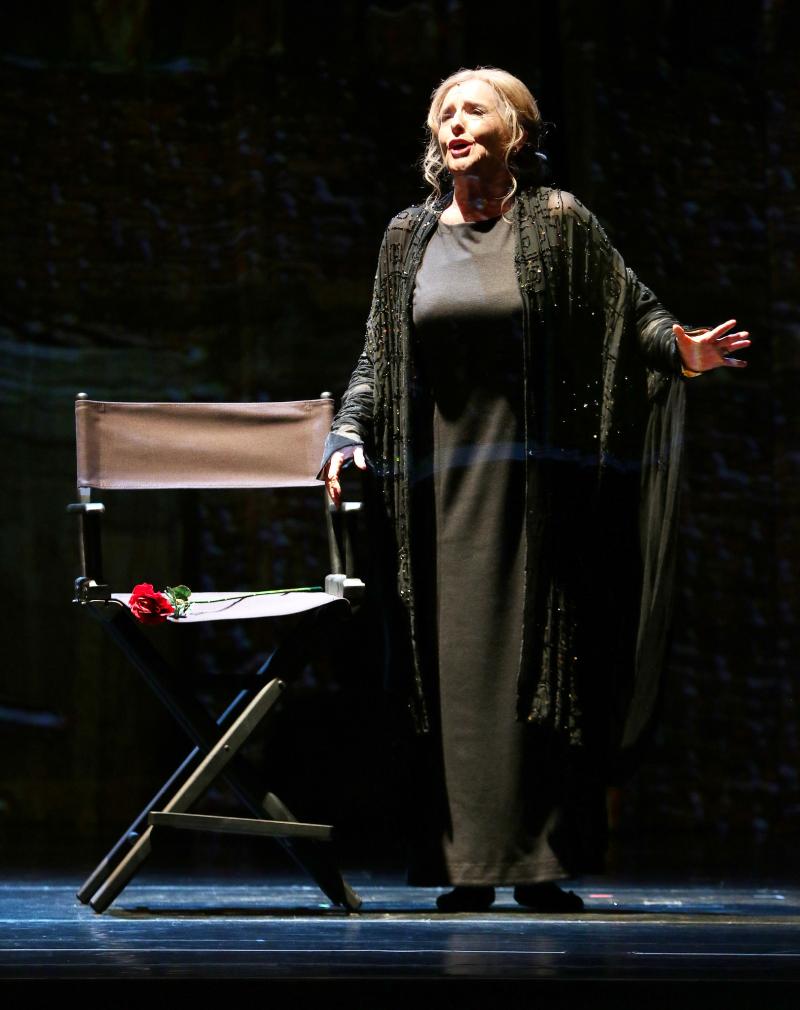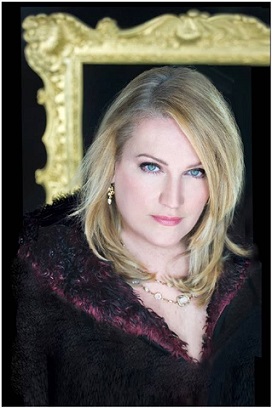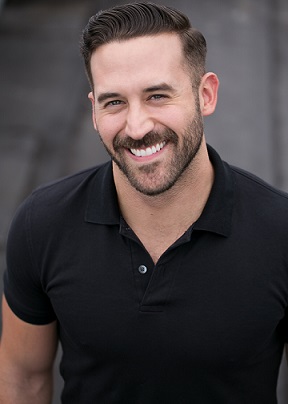Interview: Frederica Von Stade of at San Diego Opera

The famous mezzo soprano Frederica von Stade is in San Diego this week rehearsing Three Decembers, one of several works written with her in mind by her close friend Jake Heggie. The chamber opera for three singers and 11 musicians will be performed three times next weekend at the 500-seat Patrick Henry PHAME Theatre.
Von Stade recognized Heggie's talent long before he wrote his first opera and has been an influential champion ever since. Their friendship and collaboration have benefitted both. In my interview with her at a San Diego Opera rehearsal room she said, "He's given me a second career with parts in Dead Man Walking and Great Scott, and a lot of song cycles. He's my guy."
Listen to Von Stade sing anything from Mozart to Rogers and Hart and you'll find she sings from the heart, as vocal coach Sebastian Engelberg told her to many years ago. Sincerity and a gorgeous voice are why she was with the Metropolitan Opera for 30 years, has sung for five Presidents, received prestigious awards in France, Germany Italy and the United States, and garnered "Best of Year" ratings from High Fidelity and Opera News for some of the more than 100 recordings she's made
Despite these accomplishments, she's said to more than one interviewer she wished she'd worked harder. Why? "I think I would have saved a lot of conductors their frustration." But to do that, she would have had to spend less time with her daughters, and she wishes she'd been able to spend more time with them too. "I'd just burst into tears when I saw it coming--it was Monday, and I had to travel on Friday, and I couldn't take them with me." Heart and concern for others have driven more in her life than just her singing.
Von Stade is a mezzo soprano with a range high enough that some believe she should have been a soprano. "I had an incredible, incredible manager when I started. His name is Matthew Epstein. He's no longer an agent, but still out there advising. He knew roles that I should do. I followed his advice and ended up a high lyric mezzo, sort of like a soprano. We sing high Cs and everything, but we can't stay up there. It's my tessitura (most comfortable range). One of the things I've had in my career is a really strong sense of what I couldn't do. I was very happy with what I had and didn't push it. I thought I'd maybe sing in the chorus and really wanted to be on Broadway. I didn't have this yearning to sing Tosca or Madam Butterfly. I didn't expect to have the career I've had.
"Starting out (on an opera career) there were singers I just loved. To this day I adore Victoria de los Ángeles. She was everything I believed singing could be. Of my voice type, I loved her, Marilyn (Horne), and Janet Baker. I used to be flat on the ground with admiration and awe with everything that she did."
Von Stade first major role was as the youthful Cherubino in Mozart's Marriage of Figaro. Perfect for the part in voice, personality and appearance, she has sung it often. Now, many years later, her mature, still attractive voice appeals to composers with older characters in mind. In addition to Heggie Von Stade has collaborated with Richard Danielpour, Ricky Ian Gordon, Lembit Beecher, and recently deceased Dominick Argento. In 1997 she and a friend commissioned Elegies by Danielpour, five songs based on letters from her father who died oversea in WW II two months before she was born. "Through the letters I got to know him, what it was like for him to be somewhere in Germany, freezing cold and wanting to be home.
"Lembit Beecher's piece (Sky on Swings) was a struggle for me. You're never given your pitch, so you sometimes have to get it from three measures before or when the orchestra comes in. It was very tricky. I needed a week on five pages to get them down."
Von Stade had thought Heggie's Dead Man Walking was going to be her last opera,

but then got an unexpected call from Huston Grand Opera's Artistic and Music Director Patrick Summers. "He said. 'This might be outrageous, but would you consider a piece we want to commission about a lady who comes from this area.' I loved doing the piece. It was called A Coffin in Egypt (by Ricky Ian Gordon), and was based on a play by Horton Foote."
Von Stade was intrigued by the story. She visited Egypt, Texas, its crossroads-village setting, and tried to arrange a meeting with the main character's granddaughter through Summers. He reported back that the woman had said, in a heavy Texas accent imitated for me by Von Stade, "You just tell her, if I had a gun, I'd shoot a bullet right in the middle of Horton Foote's head. I want nothin' to do with any ah this!" The granddaughter was reacting to Foote's very unflattering picture of her family.
There have been many memorable moments in Von Stade long career. One that stood out was when it sank in that singing opera could be thrilling. "There was a moment. I was rehearsing the Marriage of Figaro with the director Giorgio Strehler who was head of the Piccola Scala for many years. Strehler was a theater man, a totally natural Italian musician." She was struck by a detail. "His shoes were beautiful and so were mine. Because I was in costume they were old fashioned, hand-made with buckles. I was singing Voi Che Sapete with him beside me. He had a little bend in his knee and a stance of Here I am, Here's what I've got, and I loved that moment. His energy was just such a thrill, and I sort of understood my body delivering a song. I loved him. He was cuckoo, in a most delightful way."
The mezzo has sung everything from Palestrina to Heggie but remains in love with Mozart and Cherubino, her first major role at the Met. But she surprised me with, reverting to the Texas accent, "I also love to sing country." Dropping the accent she continued, "It tells stories, it's kind of related to Schubert and Schuman. I like many types of pop music. Growing up in New Jersey, I took the train every Saturday and went to a matinee. I saw all the big shows, Annie Get Your Gun with Ethel Merman, Peter Pan, The Sound of Music, Camelot. In the two hours between shows I stood outside the Metropole Café. It was all jazz, but I couldn't go in because I was too young. I'd sit outside and listen to Gene Krupa, Dizzy Gillespie."
Von Stade believes there are as many great voices today as ever. "What I find different now is that all the young voices are beautifully trained. They're way ahead of where I was when I first started singing." And so she spends little time on technique in her master classes. "The only thing I really have on them is experience. For me, a master class is an opportunity for them to sing for the public. Make it fun for everybody. I don't want to embarrass them with that note was too flat. I just want to give them something to think about, ideas that might help them on their journey." What it would be best for them to sing in an audition, for example.
"And career paths are different today. The way it was for me, if you were lucky you got into an opera house, did all the training you could, and then got into other opera houses and did recitals and concerts with orchestras. Now, there are fewer opera companies." Yet there are more good training programs than ever, and so more competition for jobs. "That's why the kids of today, besides learning how to sing and act and all that, have to be innovative. They have to find their own work or create it."
With a further indication of wide-ranging musical tastes, she cited Chris Thile, a trained mandolin and lute player who has used his phenomenal technique to carve out a successful career in bluegrass music.
Less far afield, von Stade described a few unusual settings for innovative operatic concerts by young artists. Philadelphia's Barnes Museum's "Glass Handel" was an extreme. With the museum's substantial art collection as background, young countertenor Anthony Roth Costanzo sang music by the two composers amidst action that also included three dancers, images being drawn on a light screen, a video, and two small orchestras. As one reviewer said, even the audience was choreographed; patron seats were moved mechanically from one hub of activity to another periodically, giving each person a somewhat different perspective.
Von Stadt's heart and empathy help determine what she devotes her energy to now that her children are grown. "We need to take care of people in this world." She helped establish a violin program and a choir at Saint Martin de Porres Catholic School. She's a member of the Young Musicians Choral Orchestra board of directors. "Our kids have to sing and play an instrument, but the organization's primary objective is to teach students with limited means what they must do to get into college." Von Stadt attributes the program's high success rate to Daisy Newman, once a favorite soprano of Leonard Bernstein and now YMCO's Executive Director.
She has also worked with the Dallas Street Choir since first performing with it about seven years ago, even joining with mezzo-soprano Joyce DiDonato to arrange a successful performance at Carnegie Hall. The choir's motto is "We are homeless, not voiceless." Coming back to Three Decembers Von


Stade said "I've done three productions, the original in Houston, a new production in Chicago, and this one, which is my favorite, in Hawaii and in Livermore last year." Von Stade plays Broadway star Madeline Mitchell. Soprano Kristin Clayton and baritone Steven LaBrie costar as her adult children. "Kristin Clayton has just nailed what's going on, what's happening in every scene. It's very complex. There are three big energies coming at each other with all different things. She's found an incredible, truthful honest map."
The San Diego Opera's production of Three Decembers is nearly sold out. For ticket information and a description of what's scheduled for the rest of the season visit the Opera's website.
Photos compliments of San Diego Opera.
Comments

Videos

